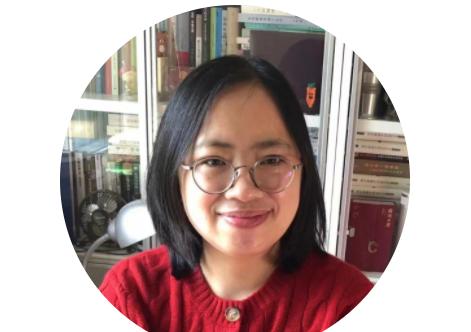01
Questions to keep thinking about

Wu Lin is an associate professor at the School of Culture and Communication, China Institute of Labor Relations. He is the author of "Common Sense and Holes", "Empowerment and Negotiation" and so on.
Wu Lin: In recent years, the issue that I have been paying attention to is the media and the governance of labor relations. In the current Chinese environment, can the media become actors involved in the governance of labour relations? What is its value concept, realistic approach and activity space? The focus of my concern is: in structural regulation, through what kind of creative practices can the media become active actors in the governance of labor relations?
Xin Yunxing, a young scholar, teaches in the Department of Public Administration of Shaoxing University of Arts and Sciences, with research interests in social psychology and rural cultural change.
Xin Yunxing: The question I have been thinking about for the past few years is, what kind of logic does the change of ideology and concept in Chinese follow? While some ideas have undergone subversive changes, others can remain unchanged, what is the theoretical basis behind them? That is, the issue of cultural transformation discussed in academia, which involves a major theoretical topic, that is, the dialectical relationship between cultural integrity and separability.
Chen Xinxin is a professor at the School of Ethnology and Sociology at the Minzu University of China. He is the author of "Reunion Society" and "Out of the Countryside".
Chen Thought: This year I have been thinking about what wealth is, how to define it, what social wealth includes, and how to accumulate it; the question directly related to it is what the value of things depends on, which is the basic problem of economic sociology that must be considered.
02
Books to watch
Wu Lin: This year, I will complete the final report of the National Social Science Foundation project, and the time is quite tight. In the limited independent reading, I was quite impressed by "Working Mothers Don't Leave Work: The Second Shift and the Unfinished Family Revolution". As a working woman with children and a housewife in a working family in a first-tier city, this book made me sigh three times and deeply felt that it was a book that made people feel very painful. This book has a certain degree of popularity at present, but it deserves more attention in the social trend of aging and low birthrate. After all, the burden of care has become an obvious problem in the current society, and if public policies are not adjusted in a timely and specific manner, the deficit and even the crisis of care labor will become more prominent.
"Working Moms Don't Leave Work", by Allie Russell Hawkheeld, translated by Shawsowei et al., Life, Reading, New Knowledge Triptych Bookstore, September 2021.
Xin Yunxing: This year, sociologist Professor Yan Yunxiang published a new book, Chinese Families Upside Down (Upside Down Chinese Family: Intergenerational Interaction and New Faulence in the Early 21st Century), which discusses the core issue of China's new familyism, saying that Chinese on the one hand, it is still necessary to obtain meaning in life through the family, and on the other hand, it is difficult to accept the traditional family relationship model, so there are entanglements in the heart... I find the core ideas very enlightening! It is worth paying attention to in the academic community.
Chinese Families Upside Down by Yan Yunxiang.
Chen thought: I pay more attention to a book, but few people in China pay attention to it, The Myth of Millionaire Tax Flight: How Place Still Matters for the Rich, the author Cristobal Young taught sociology at Stanford University at the time of publication, and now teaches in the sociology department of Cornell University.
This book re-introduces us to the big public welfare issue of the rich and taxation, and for the first time in history, with big data analysis, it answers the big question of whether raising the tax rate on the rich will affect the tax avoidance immigration of the rich. The study of the book tells us that a place that reduces the tax rate of the rich can hardly attract the rich, and increasing the tax rate of the rich can greatly increase the tax revenue, which can be used to invest in local education, infrastructure and public services, and improve the overall development level of the local society and the well-being of the people. The English version of the book was published by Stanford University Press in January 2018, and there is no Chinese translation yet, so it is recommended that it be translated.
The Myth of Millionaire Tax Flight:How Place Still Matters for the Rich,Cristobal Young 著。
03
Looking forward to the original work
Wu Lin: My ideal local original work should look like this: oriented to empirical reality, discussing substantive issues, having historical depth, and focusing on actors in the structure.
Xin Yunxing: I am particularly looking forward to the emergence of a number of works in China that can help us understand the deep logic of social change in China more deeply, especially those that reveal some paradoxical social phenomena. For example, how do the phenomena of "lying flat" and "overwork death" coexist? How are the pursuits of conservatism, nationalist ideas, and postmodern lifestyles reconciled? How did Chinese model of social relations evolve at a range of latitudes, such as equality and hierarchy, dependency and independence, relationships and rules?